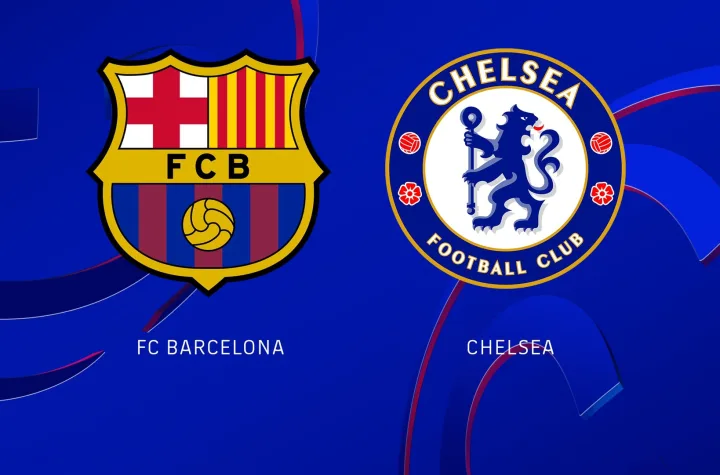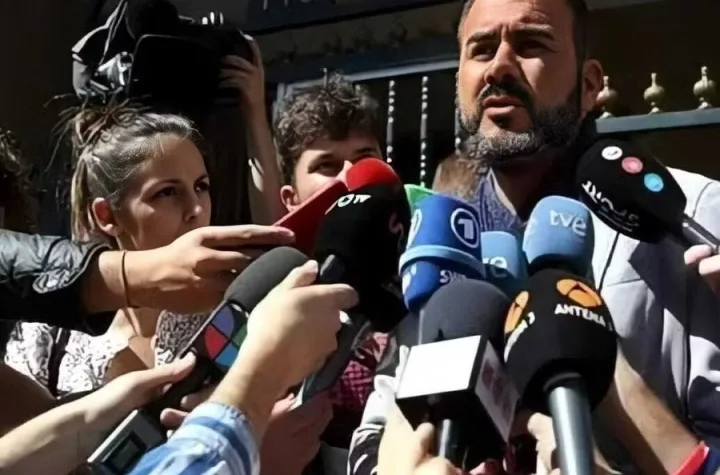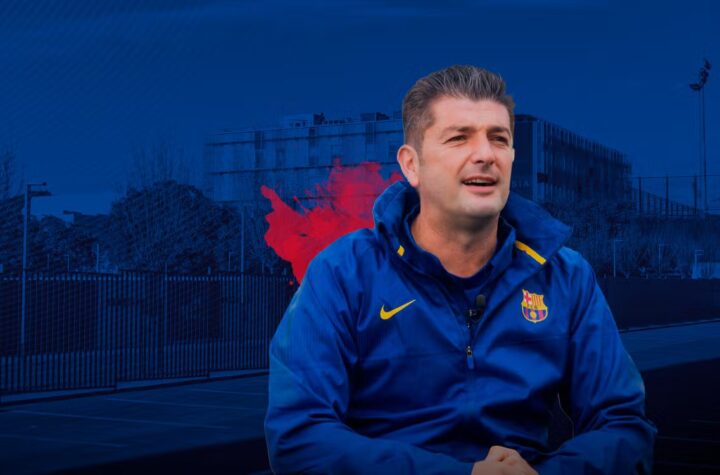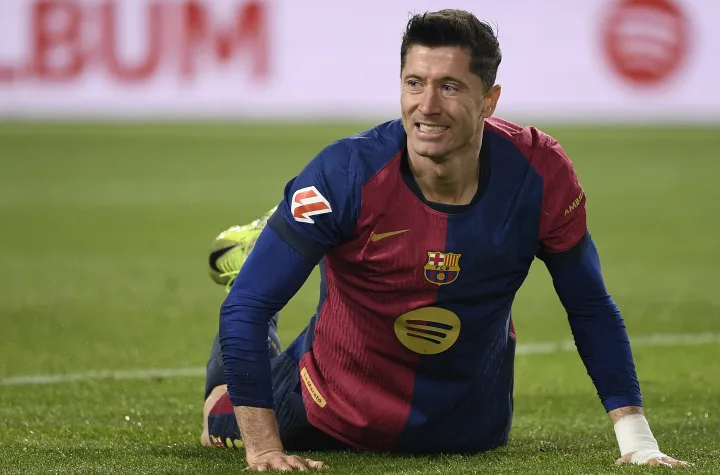
Piqué during the interview with the Universo Valdano program / Movistar +

Gerard Piqué sat down for an interview with the Universo Valdano program, from Movistar +. The Barcelona defender talked about his career, the president, the coach, and the Super League amid other things.
This is what he had to say :
On the Cup victory :
“We needed it. The team deserved it. We have been playing well and getting good results. In the Cup, we have suffered a lot throughout the competition. The final was a relief, a match that turned out very well for us. The Cup has given us an added motivation, to show that we are doing well. At Barça, you are always obliged to win something.”
On his family while growing up :
“My family is upper middle class. I have never lacked anything. I will appreciate it all my life. I joined Barça at the age of 10. There, I found a different reality. At school, you have colleagues with lives similar to those of yours. Football is born in the street, lives in the street. A new world opens up for you. It is great for your mind, you see that there is another profile of people different from you. Different ways of seeing life. I always have valued that a lot.”
On his passion for the team :
“It comes to me from a very young age. The day I was born, they made me a Barça member. It is a constant in my family. Going to the Camp Nou every time the team plays at home. Following football, basketball, all sports. I live it like a dream, but without pressure.”
On the Barça method :
“I had it since I was little. Pass and control, pass and control. It seems silly, but it is differential. When you get to professionalism, it differentiates a great player from a top player. It gets better by dedicating hours to it.”
On his childhood memories of Messi :
“He was special since he was a child. He had the ball stuck to his feet. You couldn’t get it off him. They told us not to tackle him hard because he was small, but we couldn’t even if we wanted to. We couldn’t catch him. He had an innate talent.”
On the beginning of his professional career :
“When I left Barça at the age of 17, my manager raised the possibility of going to Manchester United. At that time it was very difficult. I was fine here. They offered me money, but it was not the important thing. They offered me to train with the first team. It was a challenge to leave, to jump into the pool. I thought about it a lot. When I saw that things were not going well with Barça, I made up my mind. My mother had a bad time. I had a hard time when I got there. At 17, you don’t think about the weather or the food. You think about Manchester United and not about what the city is like, that you won’t see your friends or your family.”
On the things he learned in England :
“In England, I learned a lot. I arrived being exquisite with the ball, but I would say it was soft. There, I learned to be hard. I learned a lot mentally, to live the difficult moments alone. I was there at a time when they had the best team in Europe. I went to Zaragoza on loan for a year. There, I realized that I could compete with the greats and it comforted me.”
On the Manchester United dressing room :
“There was Giggs, Keane, Scholes, the Nevilles, and then Sir Alex Ferguson, who was a figure. He was not just a coach, but the controller of the entire club. I considered myself a child there. I had a cell phone in the locker room. I kept the cell phone in my pants and it started vibrating, not ringing. Keane started yelling about whose cell phone it was. It was a different concept.”
On his return to Barça :
“When they called me, I thought that if I don’t play much at United, how am I going to play for Barcelona? I fit them as a central defender after Puyol, Márquez, and Cáceres. I arrived without expectations, and just enjoyed coming home.”
On the glory days at Barça :
“Nobody expected it to be that good. There was a lot of desire because they had not been winning a lot since few seasons. We also came as hungry young people, wanting to be something in this world. All that combined with a coach like Pep Guardiola, who is from the club and is a genius. It was an unexpected cocktail. If there is perfection in the world of football, we touched it.”
On his Spain call-up :
“Vicente called me and I enjoyed it very much, except for a very short time, in which there was that Barça-Madrid confrontation and it affected the national team. I knew everyone because I used to be in the lower ranks. I always felt that I was going to my second home. The atmosphere was very healthy. There were many of us who understood football in the same way. We won titles, which took us to another level. Winning the World Cup a year after winning the Sextuple was really something historical. When you stop winning, you realize how special all that was.”
On the coaches who arrived after the Guardiola era :
“Tito was very close, very natural. It seemed as if he was not from the world of football. He conveyed a lot of closeness. He knew several of us since we were children. Under him, we hit the 100-point mark in the League. He was absent due to illness, but was always very present.”
“Tata was something else entirely. He came from another culture. We adapted little by little. It was a year where we lost the Cup final, and LaLiga on the last matchday. A year with no luck. He was a coach who was underestimated because nothing was won under him. He was a good person, and a good professional.”
“Luis Enrique arrived and revolutionized everything. He put three more gears and what he pointed to as a fiasco ended up being a year in which we won the treble. A situation we didn’t understand. In January, we were almost out of everything. The team and the coach gave it a 180º degree turn and we started to win and have confidence. I have not seen anything similar to the MSN. We were also very solid at the back.”
“Valverde was a very calm person. He knew how to live with players who had won a lot. Maybe we didn’t play the most colorful game in the world. We had setbacks in the Champions League. We were saddened because I think a very good job was done, but the storm clouds in Rome and Liverpool blurred every achievement.”
“Setién was the hardest moment in my time at Barça. I remember it as very difficult due to many conditions. He tried to impose his style of play, his character, but there was no connection, and the energy was not good. The result against Bayern was very hard.”
On his words after the 8-2 :
“It’s very difficult when they put a microphone on you when something like that just happened. People were very angry. You always have to say what you think, without thinking about whether it is good or bad for you. You have to empathize with the fan who is a Culé and all he wants in the world is for Barça to win. You cannot look for solutions or excuses at that moment. I chose to be myself. I said that the castle had fallen and it was time to rebuild it.”
On Koeman :
“He has been brave and he has the vision. He has helped the young players a lot. Pedri, Araujo, Ansu, Frenkie, Ilaix are very young people who have gained a lot of experience in moments that were not easy. They have hardened very quickly. This experience is priceless. Having players with 40 games in the first division with the Barça shirt at this age is very valuable.”
On Laporta :
“He is also very brave. He has arrived with that happiness, that optimism. It was necessary. It is going well, although there is much to change.”
On the European Super League :
“I would say it’s not a positive decision for football in the long-term. They’re saying that the domestic leagues are going to stay and remain competitive. But the numbers don’t fit. At the moment, the Champions League is getting €3.5 billion in TV revenue and they say the Super League could eventually triple revenue for the clubs. If you speak with specialists and experts in TV rights, they will tell you that this change is not possible because the money’s not there for it in the market. So, at first, they say the domestic leagues are going to stay, but the years are going to pass and then the banks and investment funds that have put in their money projecting this revenue are going to want to see a return. And when it doesn’t arrive, the clubs will have to make a decision because there will be losses because it’s not sustainable. And the clubs will decide there will have to be weekend games and they will leave their domestic leagues. And there will be a competition Wednesday-Saturday. That’s how I see it. That it will slowly eat into the domestic leagues’ revenue stream. And that’s how the numbers add up. They’re destroying the whole system to achieve it. Do we want this for football? That Sevilla, Valencia, Everton, Leicester, Napoli, etc disappear? Because those clubs are going to end up becoming worth nothing. That’s where we are going. If I put on the president’s hat, I think Joan Laporta has inherited the club under very negative economic circumstances and tries to make the best possible decision for the club. the reason for signing up is fundamentally economic.”
On presiding over Barça in the future :
“I am lucky, because of my position as the president of Andorra, to see how the presidents move. I really like to see it. I don’t know if I will get involved. If I do, I will do it with all the rules, to have a positive impact for the club of my life. I will go with everything. A president has to be a very solid figure, people need to trust him a lot. It is important that he has a direction. Without that structure, if hierarchies are not preserved, what happens is not good.”
On Messi’s future :
“I couldn’t tell you what’s going to happen with him. I think in the recent months he looks happy and content. That is important because he impacts the team as he is the captain and influences the whole team. The team is doing very well and much of it is because of him. I would try to go day by day and enjoy it to the fullest. Those of us who have been with him a lot are going to support him, whatever he decides. He has given us so much, perhaps he is the best ever. I thank him, as I have told him personally many times. We will try to make the most of him while he is with us.”





More articles
FC Barcelona Femení to possibly be featured in international seven-a-side tournament held before UEFA Women’s Champions League Final
Star Crossed Losers; Spain suffer against the roar of England’s Lionesses
Kika serves Portuguese Pastel de nata to the English